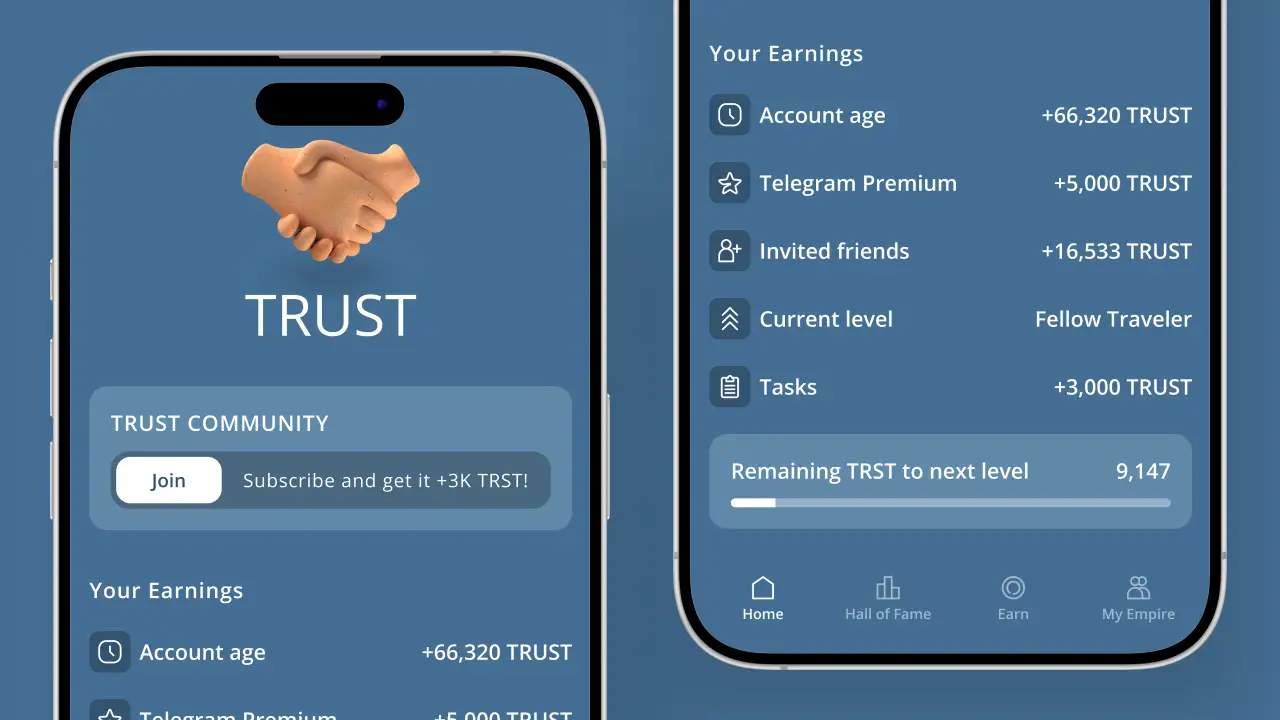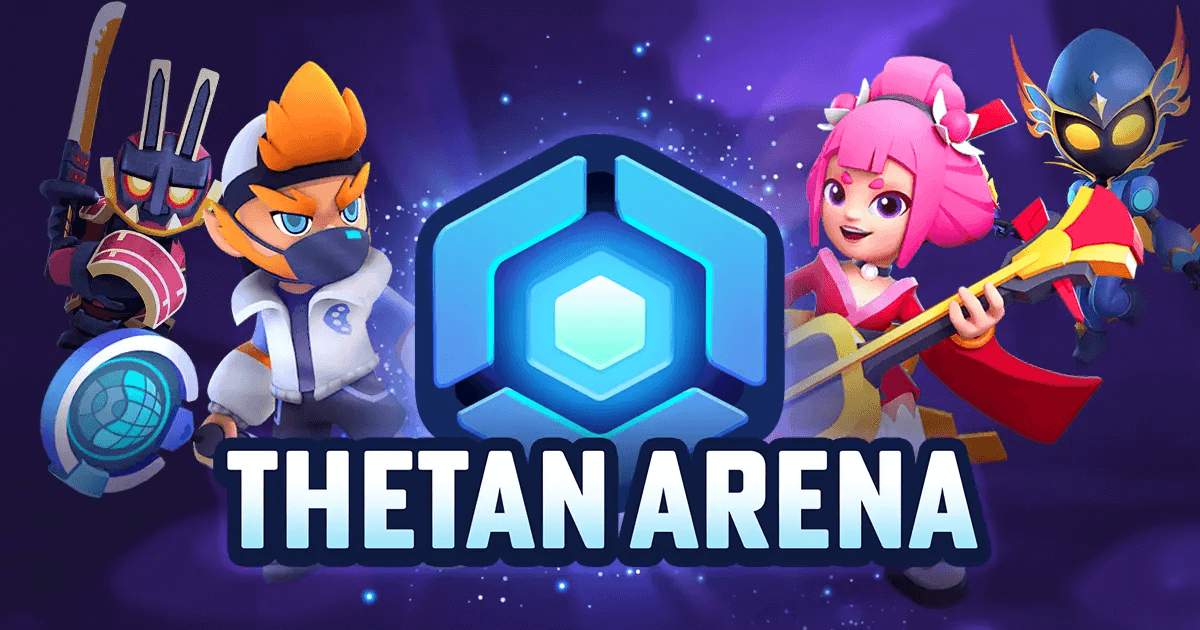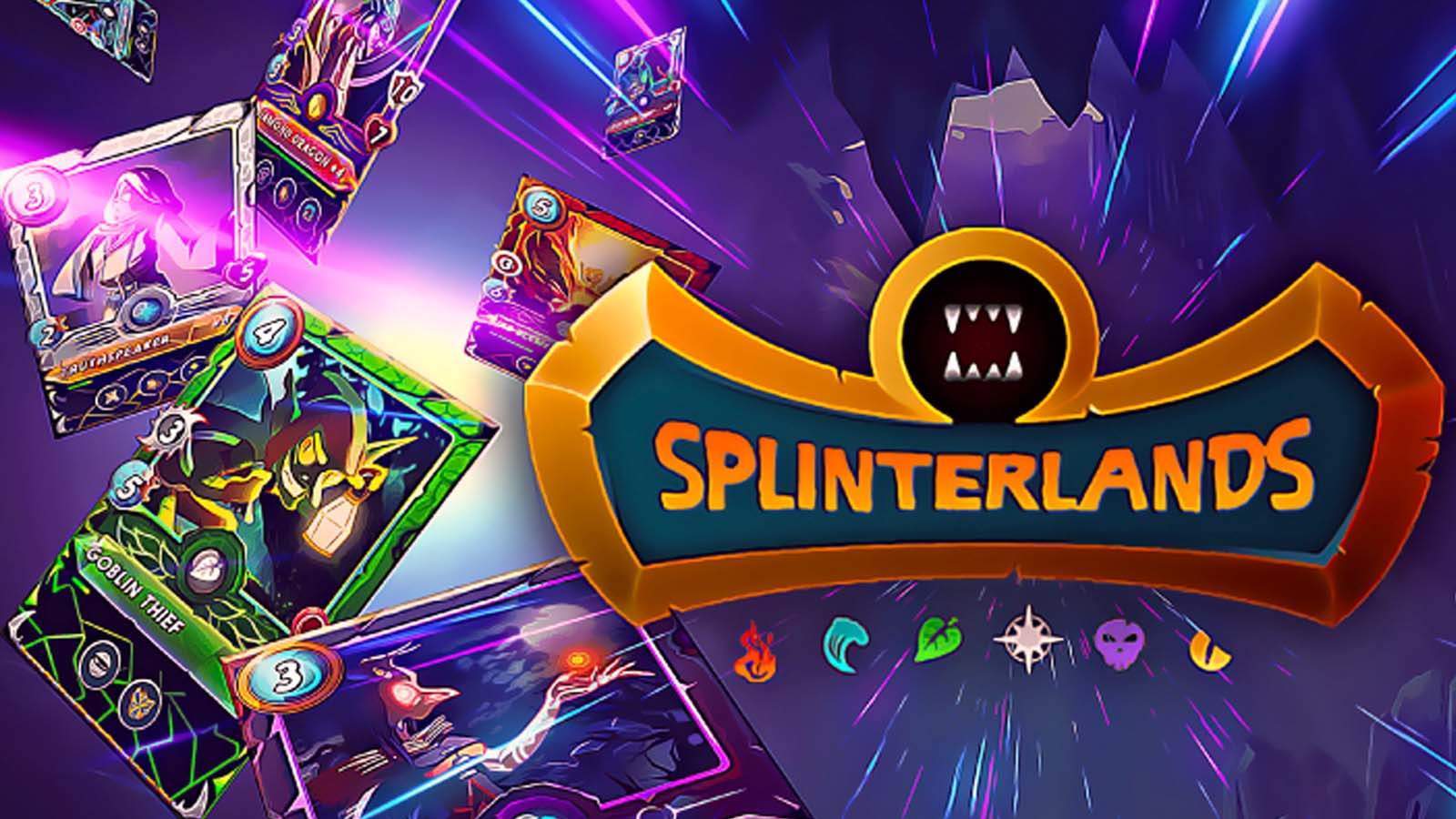Best Earn Crypto Playing Games



Editorial Note: While we adhere to strict Editorial Integrity, this post may contain references to products from our partners. Here's an explanation for How We Make Money. None of the data and information on this webpage constitutes investment advice according to our Disclaimer.
Top-5 earn crypto playing games:
Hamster Kombat - Tap on hamsters and use daily boosters to enhance gameplay and earn rewards.
TRUST Empire - Build and expand your empire, managing resources and earn in-game currency.
Decentraland - Buy, develop, and trade virtual land and properties in a vast virtual world to earn real money.
Thetan arena - Participate in various battle modes in this MOBA game to earn Thetan Coins and Thetan Gems.
Splinterlands - Build decks and compete in collectible card battles to earn Dark Energy Crystals and trade valuable cards.
Play-to-earn (P2E) crypto games have revolutionized the gaming industry by merging traditional gameplay mechanics with blockchain technology, allowing players to earn cryptocurrencies and NFTs (non-fungible tokens) as rewards. In this article you will find the best play to earn crypto games.
Best games to earn crypto
These games are not only fun but also provide financial incentives, creating new opportunities for gamers to monetize their skills and time. The rise of P2E games is fueled by the increasing popularity of blockchain and NFTs, offering a glimpse into the future of gaming and digital economies.
1. Hamster Kombat
In this engaging game, players tap on hamsters and use daily boosters to enhance their gameplay experience. By using daily combos and utilizing boosters effectively, players can earn various in-game rewards, which can be traded or sold for real money.

2. TRUST
TRUST is a new revolutionary Telegram meme coin project aimed at becoming the largest by both participant count and coin value. TRUST allows users to earn coins not only through direct referrals but also through a multi-level system where earnings extend to the friends invited by your referrals.

3. Decentraland
Decentraland offers a vast virtual world where players can buy, develop, and trade virtual land and properties. By creating and selling digital goods, hosting events, and investing in virtual real estate, players can earn real money. The in-game currency, MANA, can be traded on various cryptocurrency exchanges.

4. Thetan Arena
Thetan Arena is a MOBA game featuring multiple battle modes, including battle royale. Players earn Thetan Coins (THC) and Thetan Gems (THG) by participating in battles, completing missions, and achieving high ranks. These tokens can be traded or sold, providing a lucrative play-to-earn opportunity.

5. Splinterlands
In Splinterlands, players build decks and compete in collectible card battles. Winning battles, completing quests, and participating in tournaments earn players Dark Energy Crystals (DEC). Additionally, players can buy, sell, or rent valuable cards, with DEC being tradable on cryptocurrency exchanges, making it a profitable game for card enthusiasts.

Main types of P2E games
Play-to-earn (P2E) games encompass various genres and formats, allowing players to earn rewards, typically in the form of cryptocurrency or NFTs, through gameplay. Here are some common types of P2E games:
Tap games are mobile games where players repeatedly tap the screen to perform various actions. These games are simple, addictive, and often feature incremental progression. Examples of such games include: Hamster Kombat, Moonbix, Coinsweeper, BirdTON, BUMS, POTUS and others.
Blockchain-based games: Players create characters, complete quests, and explore virtual worlds while earning rewards. An example of such a game is a blockchain-based gaming platform DreamCoin, Off the Grid and Vertus.
Strategy games: These games involve planning and resource management to achieve objectives, often with competitive elements.
Simulation games: Players build and manage virtual environments or ecosystems, earning rewards through efficient management.
Sports and racing games: Games that simulate real-world sports or racing, offering rewards for achievements and victories.
Puzzle and casual games: Simple, easy-to-play games that offer rewards for completing levels or achieving high scores.
These diverse types of P2E games cater to different interests and playstyles, making the play-to-earn model accessible to a wide audience.
How to play online games and earn money
In general, the algorithm of actions in all games is similar. To start playing crypto games, follow these steps:
Choose the right game
Research and select a game that offers real earning potential. Look for games that have a proven track record of paying out players.
Understand the game mechanics
Spend time learning the rules, strategies, and mechanics of the game. The more you understand the game, the better your chances of earning money.
Set up a digital wallet
Many crypto games require transactions in cryptocurrencies. Set up a secure digital wallet to manage your earnings and in-game purchases.
Invest in initial resources
Some games might require an initial investment in the form of buying characters, tools, or other in-game items. Ensure you invest wisely and within your budget.
Join a community
Engage with the game’s community to gain insights, tips, and strategies. Communities can also provide support and opportunities for collaborations.
Join a community
Consistency is key. Play regularly to improve your skills and increase your earning potential. Develop strategies to maximize your gains.
Withdraw your earnings
After you have accumulated a significant amount of money and when the game coin is officially listed on a crypto exchange, withdraw your earnings to your digital wallet. Make sure that you follow the game's withdrawal policy to avoid any problems.
We have analyzed the best crypto exchanges for you and here are their conditions.
| Exchange | Coins Supported | Spot fee rate, Taker fee,% | Spot fee rate, Maker fee, % | Fiat Supported | Foundation year | Open an account |
|---|---|---|---|---|---|---|
| Bybit | 638 | 0.1 | 0.1 | USD, EUR, GBP, BRL, UAH, TRY, ZAR, PLN | 2018 | Open an account Your capital is at risk. |
| Gate.io | 2160 | 0.2 | 0.2 | USD, EUR, GBP, BRL, AUD, UAH, TRY, PLN | 2013 | Open an account Your capital is at risk.
|
| Bitget | 831 | 0.1 | 0.1 | USD, EUR, GBP, BRL, AUD,TRY, ZAR, PLN, NGN | 2018 | Open an account Your capital is at risk. |
| KuCoin | 799 | 0.02 | 0.02 | USD, EUR, GBP, BRL, AUD, UAH, TRY, ZAR, PLN, NGN | 2017 | Open an account Your capital is at risk. |
| Binance | 415 | 0.1 | 0.1 | USD, EUR, BRL, AUD, UAH, TRY, PLN | 2017 | Open an account Your capital is at risk. |
| HTX | 701 | 0.2 | 0.2 | USD, EUR, GBP, BRL, AUD, UAH, TRY, PLN, NGN | 2013 | Open an account Your capital is at risk. |
| BingX | 740 | 0.1 | 0.1 | USD, EUR, GBP, BRL, AUD, TRY, ZAR, PLN, NGN | 2018 | Open an account Your capital is at risk. |
| OKX | 329 | 0.1 | 0.08 | USD, EUR, GBP, BRL, AUD, UAH, TRY, ZAR, PLN, NGN | 2017 | Open an account Your capital is at risk. |
Choosing a secure and reliable platform is crucial for converting in-game assets into real-world value. For the latest information, consult our resources: support channels like TU Airdrop Daily, or community forums for specific details on withdrawal processes, conditions, NEW combo and etc.
What beginners should consider
Game mechanics and playability
Understanding gameplay: Beginners should ensure they understand the basic mechanics and rules of the game. It's important to choose a game that matches their interests and playstyle.
Learning curve: Opt for games with a gradual learning curve to avoid becoming overwhelmed. Tutorials and beginner guides can be helpful.
Initial investment
Cost of entry: Some P2E games require an initial investment to purchase characters, cards, or other in-game assets. Beginners should evaluate the cost and determine if it's within their budget.
Free-to-play options: Look for games that offer free-to-play options or minimal entry costs to start earning without significant financial risk.
Earning potential
Earnings mechanism: Understand how the game rewards players. This could be through completing quests, winning battles, or trading in-game assets.
Realistic expectations: Set realistic expectations about earnings. P2E games can be profitable, but they often require time and effort to yield significant returns.
Security and trustworthiness
Reputation: Research the game's reputation and the developers behind it. Look for reviews and community feedback to ensure the game is legitimate and secure.
Blockchain technology: Familiarize yourself with the blockchain technology the game uses. Understanding how transactions work can help in managing your in-game assets securely.
Community and support
Community engagement: Join community forums and social media groups related to the game. These platforms provide valuable insights, tips, and support from experienced players.
Customer support: Ensure the game has a reliable customer support system to address any issues or concerns that may arise during gameplay.
Market trends
Asset value: Keep an eye on the market value of in-game assets. Prices can fluctuate, and understanding these trends can help in making informed decisions about buying or selling assets.
Cryptocurrency knowledge: Since many P2E games use cryptocurrencies, such as the xKuCoin game, beginners should have a basic understanding of how to manage and trade these digital assets.
Time commitment
Gameplay frequency: Consider how much time you can realistically dedicate to playing the game. Some P2E games require daily participation, like the BUMS Daily Combo, to maximize earnings.
Balance: Maintain a balance between gameplay and other responsibilities to ensure a healthy and enjoyable experience.
By considering these factors, beginners can make informed decisions when starting with play-to-earn games, maximizing their enjoyment and earning potential while minimizing risks.
P2E games hold immense promise for the future of both gaming and digital finance
From my perspective, Play-to-Earn (P2E) games represent a groundbreaking innovation that combines the best of gaming with decentralized finance. These games democratize earning opportunities by allowing players to monetize their gaming skills and time in a way that was previously unimaginable.
However, I must caution that the in-game economies can be highly volatile, and the platforms need to be secure to protect players' investments. Thorough research is crucial before diving into these games, as the potential for profit, while real, often requires significant effort and strategic gameplay. Despite the challenges, P2E games hold immense promise for the future of both gaming and digital finance.
Summary
Play-to-Earn (P2E) games are a genre of games that allow players to earn real-world rewards, often in the form of cryptocurrency or NFTs, through in-game activities. These games leverage blockchain technology to provide secure and transparent transactions, enabling players to buy, sell, and trade digital assets. P2E games have gained popularity for offering both entertainment and financial incentives, creating new opportunities for gamers worldwide.
FAQs
What are Play-to-Earn (P2E) games?
P2E games are video games that allow players to earn real-world rewards, such as cryptocurrency or NFTs, by participating in in-game activities, completing quests, or trading virtual assets.
How do I start playing Play-to-Earn games?
To start playing P2E games, you typically need to choose a game, create an account, and sometimes invest in initial assets like characters or cards. It's important to understand the game's mechanics and the blockchain technology it uses.
Are Play-to-Earn games profitable?
P2E games can be profitable, but earnings depend on various factors, including the game's economic model, the player's skill level, time investment, and market conditions for in-game assets. Players should have realistic expectations and understand that significant returns often require effort and strategy.
What are the risks associated with Play-to-Earn games?
Risks include the volatility of cryptocurrency markets, potential loss of investment, security issues related to blockchain technology, and the possibility of games or platforms failing. It's crucial to research thoroughly and invest wisely.
Related Articles
Team that worked on the article
Chinmay Soni is a financial analyst with more than 5 years of experience in working with stocks, Forex, derivatives, and other assets. As a founder of a boutique research firm and an active researcher, he covers various industries and fields, providing insights backed by statistical data. He is also an educator in the field of finance and technology.
As an author for Traders Union, he contributes his deep analytical insights on various topics, taking into account various aspects.

Dr. BJ Johnson is a PhD in English Language and an editor with over 15 years of experience. He earned his degree in English Language in the U.S and the UK. In 2020, Dr. Johnson joined the Traders Union team. Since then, he has created over 100 exclusive articles and edited over 300 articles of other authors.
Mirjan Hipolito is a journalist and news editor at Traders Union. She is an expert crypto writer with five years of experience in the financial markets. Her specialties are daily market news, price predictions, and Initial Coin Offerings (ICO).
Cryptocurrency is a type of digital or virtual currency that relies on cryptography for security. Unlike traditional currencies issued by governments (fiat currencies), cryptocurrencies operate on decentralized networks, typically based on blockchain technology.
Volatility refers to the degree of variation or fluctuation in the price or value of a financial asset, such as stocks, bonds, or cryptocurrencies, over a period of time. Higher volatility indicates that an asset's price is experiencing more significant and rapid price swings, while lower volatility suggests relatively stable and gradual price movements.
Forex leverage is a tool enabling traders to control larger positions with a relatively small amount of capital, amplifying potential profits and losses based on the chosen leverage ratio.
Bitcoin is a decentralized digital cryptocurrency that was created in 2009 by an anonymous individual or group using the pseudonym Satoshi Nakamoto. It operates on a technology called blockchain, which is a distributed ledger that records all transactions across a network of computers.
Yield refers to the earnings or income derived from an investment. It mirrors the returns generated by owning assets such as stocks, bonds, or other financial instruments.































































































































